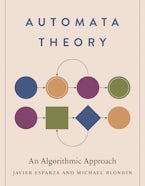A new approach for conceptualizing and modeling multi-agent systems that consist of people, devices, and software agents.
Today, when computing is pervasive and deployed over a range of devices by a multiplicity of users, we need to develop computer software to interact with both the ever-increasing complexity of the technical world and the growing fluidity of social organizations. The Art of Agent-Oriented Modeling presents a new conceptual model for developing software systems that are open, intelligent, and adaptive. It describes an approach for modeling complex systems that consist of people, devices, and software agents in a changing environment (sometimes known as distributed sociotechnical systems). The authors take an agent-oriented view, as opposed to the more common object-oriented approach. Thinking in terms of agents (which they define as the human and man-made components of a system), they argue, can change the way people think of software and the tasks it can perform. The book offers an integrated and coherent set of concepts and models, presenting the models at three levels of abstraction corresponding to a motivation layer (where the purpose, goals, and requirements of the system are described), a design layer, and an implementation layer. It compares platforms by implementing the same models in four different languages; compares methodologies by using a common example; includes extensive case studies; and offers exercises suitable for either class use or independent study.












